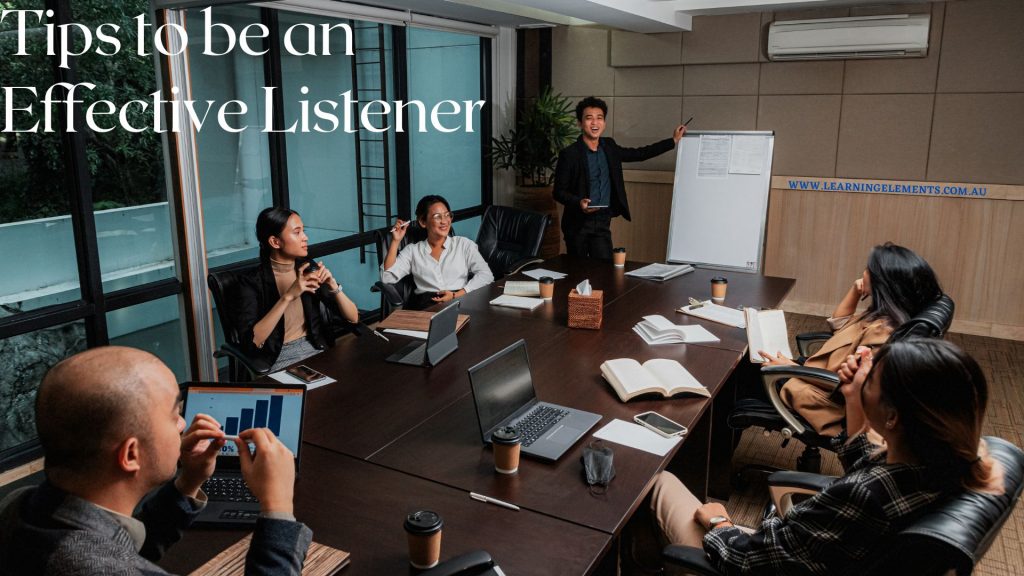How to Improve Your Listening Skills: 5 Steps To Do
Improving your listening skills is very important at the workplace or in daily use.
Listening skills are essential for successful communication in the workplace. Effective listening leads to productive conversations, improved relationships, and better problem-solving. Good listening skills can also help you stay ahead of the competition, as you can quickly understand your customer’s needs and make informed decisions. You can check our simple steps here if you want to improve your workplace listening skills.
These tips will help you focus more on the speaker, understand the message more clearly, and respond confidently. With practice and patience, you can become a better listener and achieve greater success in life and the workplace.
The Importance Of Effective Listening
Listening is one of the essential skills to have in any workplace. Listening is the process of understanding what is being said by another person. It involves paying attention to what another person is saying to you and responding appropriately. Effective listening is crucial in any relationship, whether it’s between co-workers, friends, or family members. Also, in the workplace, employee communication is vital to the business. People who don’t listen effectively may miss important information that could help their careers.
In contrast, people who listen well can make connections between different ideas and use that information to achieve their goals. Avoid distraction, and don’t assume what the other person will say. Read our simple steps below.
5 Steps To Improve Your Listening Skills
Step 1: Focus on the speaker
First, you must focus on the speaker to improve your listening skills. If your mind is elsewhere, you won’t be able to understand or respond appropriately. To improve your focus:
- Clear your thoughts. If your mind is racing with ideas, focus on breathing.
- Concentrate on the speaker/leader if you’re in a meeting. If you’re having a conversation with a colleague, try to focus on the person speaking.
- Try to concentrate on their words when you’re talking to a customer. You can also visualise yourself in a quiet place to clear your thoughts.
Step 2: Understand the message
Once you’ve focused on the speaker, you can improve your listening skills by trying to understand the message. You need to understand the message to be able to respond appropriately. To enhance your understanding – VISUALISE.
- Try to visualise what the speaker is saying. If you’re having a conversation with a colleague, try to imagine the situation as if you were watching it on TV.
- When you’re meeting with your manager, try visualising the discussion as if you were reading it in a book. If you’re talking with a customer, try to imagine the situation from their point of view.
- When visualising the discussion, try to visualise as many details as possible.
Step 3: Respond with empathy
Once you’ve understood the message, you can respond with empathy. Responding with compassion shows that you’ve truly listened to what the speaker has said. Respond compassionately by trying to put yourself in the speaker’s shoes. If you’re meeting with a colleague, try to imagine what it must be like to be in their position. If you’re talking with a customer, imagine what it must be like to be in their situation. When responding with empathy, try to avoid assumptions and judgments. Instead, try to see the problem from the speaker’s point of view.
Step 4: Practise active listening
Once you’ve focused on the speaker and tried to understand the message, practise active listening. Active listening requires that you are fully engaged, do not interrupt, and respond with empathy. Try to practise these three essential elements of active listening to improve your listening skills.
- Commit to the discussion – When you commit to the discussion, you show that you’re genuinely interested in what the speaker says.
- Avoid distractions – When you’re in a meeting or having a conversation, try to avoid distractions as much as you can. Turn off your phone, avoid checking social media, and stay focused on the discussion.
- Respond promptly – When the other person is speaking, try to avoid interrupting and respond swiftly. If the speaker pauses while talking, you can show that you’re interested in what they have to say by nodding or encouraging gestures. When the other person has finished speaking, you can pause to respond to what they’ve said. To answer, you can either respond immediately or take a moment to collect your thoughts.
Step 5: Ask questions
Focus on the speaker, understand the message, respond with empathy, and then ask questions. When you ask questions, you show that you’ve listened to what the speaker has said and are genuinely interested in the discussion. You can use these types of questions to improve your listening skills.
- Re-direct questions – You can start by re-directing questions. This means that you respond to what the speaker has said by asking follow-up questions. Examples of re-direct questions include: “What do you mean by that?”, “What situation are you referring to?”, “What are the advantages?” and “What are the disadvantages?”
- Clarifying questions – You can also explain what the speaker has said. To clarify, you can ask questions like “What do you mean by that?”, “Could you give me an example?” and “How does that relate to our discussion?”
- Reflective questions – You can also reflect on what the speaker has said. Remember, you can summarise or paraphrase what you’ve heard from the speaker.
Conclusion
Listening is the key to successful communication in daily life or at the workplace. When you listen, you take in important information that can help you solve problems, make decisions, and improve your relationships. If you want to improve your listening skills, use the five steps we shared. With those tips, you will be a better listener and achieve greater success in the workplace.






